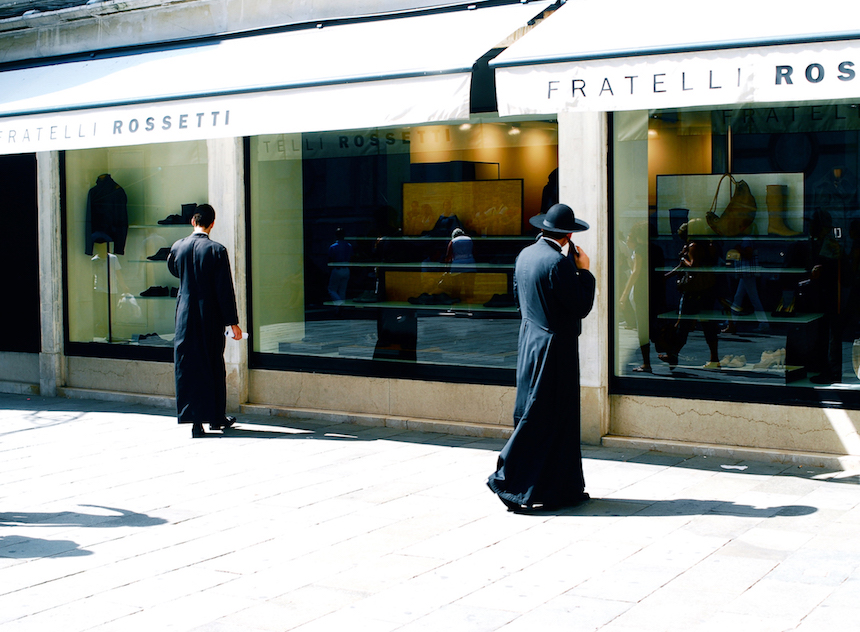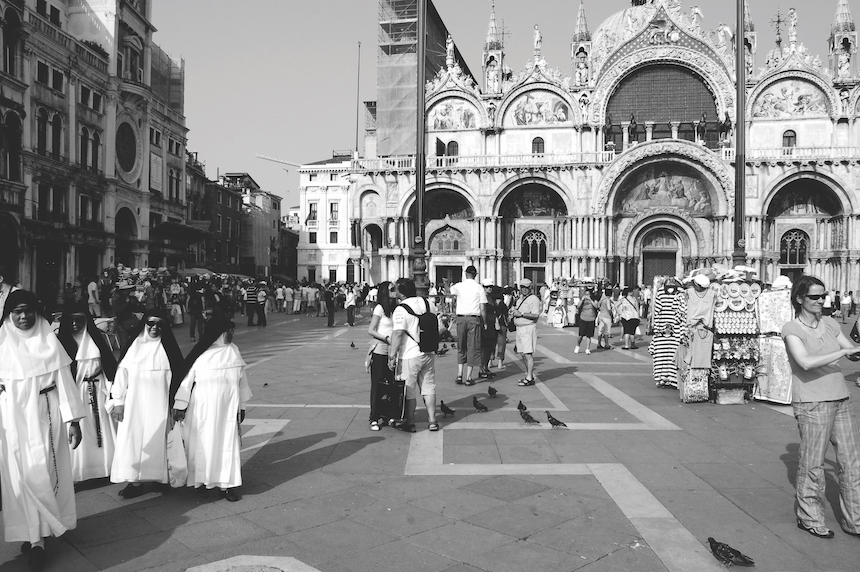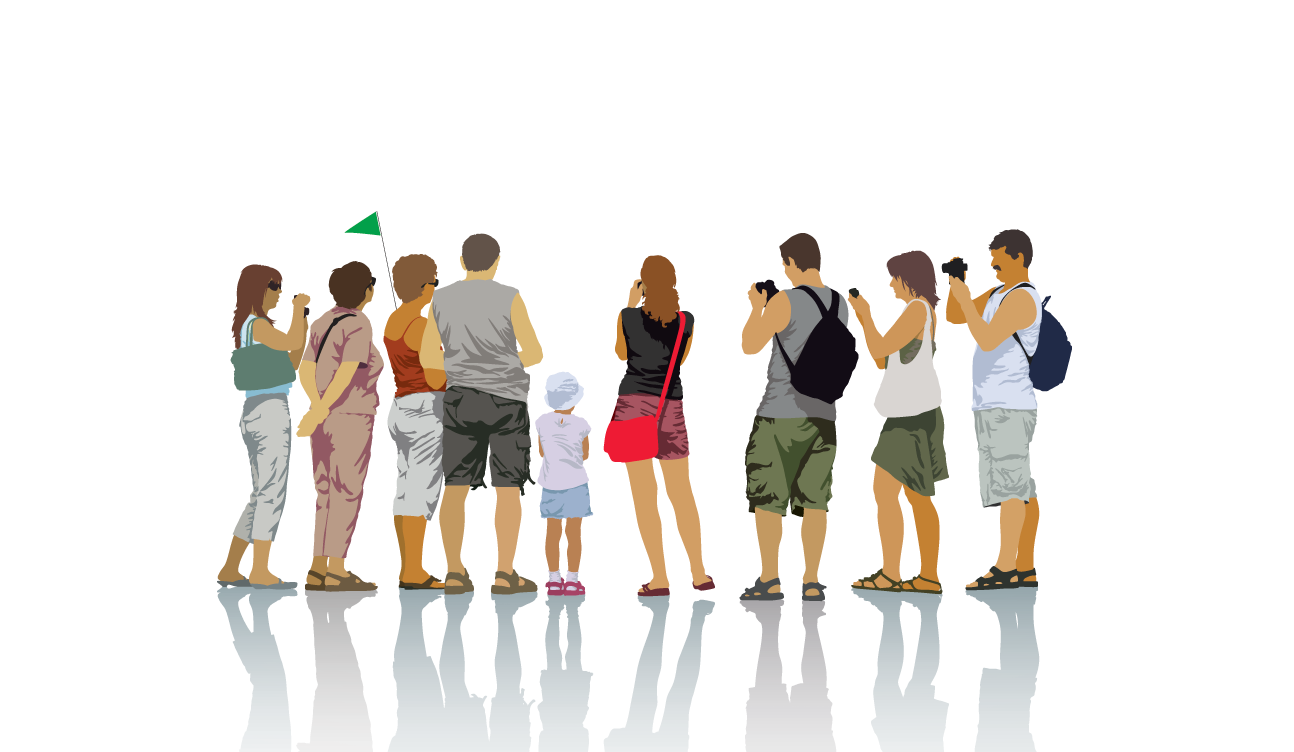 Much of the world’s population has taken turns being tourists and encountering tourists in their home districts. Those of us who live in popular American major cities such as New York, San Francisco, and Philadelphia frequently come across tourists, or in more gracious terms, travellers. In turn, when we travel to Portland or Las Vegas or Tannersville we become the visitors.
On certain obvious levels, tourists or travellers are desirable to cities, to resorts, to countries in general. Tourists spend money; jobs are created to cater to them. Cultural institutions and sports arenas tempt their foot traffic and wallets. Vendors of souvenirs crave their spending. And in turn, tourists and travelers desire enjoyable experiences. They hope and plan for memorable vacations. They have checklists of landmarked buildings, museums, monuments and theatrical productions when they venture forth.
But tourists can also elicit gripes, both petty and significant. Many of us have been on both sides of the fence, and while we may grouse about slow-moving tourists in midtown Manhattan who make it difficult to return to our offices, we have also been the snail-paced, gawking tourists in London or Chicago or Tel Aviv or wherever. Urbanites typically bump up against travellers more often than suburbanites or rural residents, but even they may see them in action—and they become the travellers while on their own vacations.
Keeping this social-graces dilemma in mind, should a tourist try to blend in as much as possible, or is it an impossible or overly heroic task? Should we just reckon that we are outsiders and thus cannot fool the locals? Or is this more about not sticking out too dramatically? When travelling do we choose to stand out or be part of the scenery? And can we actually fool anyone, least of all ourselves?
People around the world do have their complaints about the behavior displayed by some (many? Too many?) tourists, and often it boils down to the following:
Much of the world’s population has taken turns being tourists and encountering tourists in their home districts. Those of us who live in popular American major cities such as New York, San Francisco, and Philadelphia frequently come across tourists, or in more gracious terms, travellers. In turn, when we travel to Portland or Las Vegas or Tannersville we become the visitors.
On certain obvious levels, tourists or travellers are desirable to cities, to resorts, to countries in general. Tourists spend money; jobs are created to cater to them. Cultural institutions and sports arenas tempt their foot traffic and wallets. Vendors of souvenirs crave their spending. And in turn, tourists and travelers desire enjoyable experiences. They hope and plan for memorable vacations. They have checklists of landmarked buildings, museums, monuments and theatrical productions when they venture forth.
But tourists can also elicit gripes, both petty and significant. Many of us have been on both sides of the fence, and while we may grouse about slow-moving tourists in midtown Manhattan who make it difficult to return to our offices, we have also been the snail-paced, gawking tourists in London or Chicago or Tel Aviv or wherever. Urbanites typically bump up against travellers more often than suburbanites or rural residents, but even they may see them in action—and they become the travellers while on their own vacations.
Keeping this social-graces dilemma in mind, should a tourist try to blend in as much as possible, or is it an impossible or overly heroic task? Should we just reckon that we are outsiders and thus cannot fool the locals? Or is this more about not sticking out too dramatically? When travelling do we choose to stand out or be part of the scenery? And can we actually fool anyone, least of all ourselves?
People around the world do have their complaints about the behavior displayed by some (many? Too many?) tourists, and often it boils down to the following:
- getting in the way of the smooth flow of traffic, especially foot traffic
- taking inappropriate selfies (for instance, duck-face pictures at Holocaust memorials, middle-fingers given at religious sites, dabbing or twerking while in front of somber memorials)
- talking loudly, in the host country’s language or one’s own
- mocking the customs of the locals or making disparaging and loud comments
- carving one’s name into trees, shrines, artworks, etc.
- being way too rowdy and drunk or stoned
- not flushing the public toilets
- publicly defecating, spitting and performing other bodily functions

 Thus I asked some friends, most of them native New Yorkers themselves or long-time residents, for their perceptions of tourists to the Big Apple:
Lisa: “It’s cool to see their faces seeing things for the first time that we take for granted.” And at times “I’m a sucker for touristy stuff.”
Shadrach: “I think it boils down to being a respectful guest.”
Shelley: “I like to help tourists with directions and ideas when I have the time.”
David: “You’d be surprised at how grateful tourists are for speaking their language…”
Jacqui: “Tourists need to factor in how what they do might impact those around them.
Gershom: “NYC is a place where nobody stares at you for being on your own as a solo traveller.”
Joe: “Tourism is a necessary evil in certain places, especially Las Vegas.”
We New Yorkers are well aware that our city has long been a destination within a big country, and this won’t stop. And we need to take this in stride… or should we gnash our teeth and protest?
Certain premier cities and destinations are reacting to “tourist flood” with eye-opening messages. Venice, Italy has put up signs that read “Tourists Go Away!!! You Are Ruining This Area” and the local government is trying to limit tourists at certain popular destinations.
Rodney Bolt, writing for the Telegraph in “Amsterdam is becoming the new Venice, a city stolen by tourists” posits harsh realities and questions. He sees Amsterdam becoming a polarized city and “what is more important to the very being of a city—citizens’ quality of life or economic prosperity, and the complexities of how these two interrelate.” Evidently this is an issue in more than one city, more than one resort area. And is “overtourism…a form of pollution, both social and environmental”?
The future of tourism and the debate over its positive and negative aspects is much more complex than one might first think. It is multilayered and has ripple effects. It is much more than people visiting places and buying postcards with charming scenes.
I will close with this memory: the first time I visited Madrid, with a work colleague, I recall being stumped by oddly shaped metal things on many sidewalks. My friend Alex looked at them and quickly sized them up as recycling and sorting receptacles. It dawned on me that as a tourist, I was naive of my impact on a major city as far as environmental issues. My awareness began to evolve with this trip and it was not because I had visited a famous art museum.
– Ellen Levitt
Thus I asked some friends, most of them native New Yorkers themselves or long-time residents, for their perceptions of tourists to the Big Apple:
Lisa: “It’s cool to see their faces seeing things for the first time that we take for granted.” And at times “I’m a sucker for touristy stuff.”
Shadrach: “I think it boils down to being a respectful guest.”
Shelley: “I like to help tourists with directions and ideas when I have the time.”
David: “You’d be surprised at how grateful tourists are for speaking their language…”
Jacqui: “Tourists need to factor in how what they do might impact those around them.
Gershom: “NYC is a place where nobody stares at you for being on your own as a solo traveller.”
Joe: “Tourism is a necessary evil in certain places, especially Las Vegas.”
We New Yorkers are well aware that our city has long been a destination within a big country, and this won’t stop. And we need to take this in stride… or should we gnash our teeth and protest?
Certain premier cities and destinations are reacting to “tourist flood” with eye-opening messages. Venice, Italy has put up signs that read “Tourists Go Away!!! You Are Ruining This Area” and the local government is trying to limit tourists at certain popular destinations.
Rodney Bolt, writing for the Telegraph in “Amsterdam is becoming the new Venice, a city stolen by tourists” posits harsh realities and questions. He sees Amsterdam becoming a polarized city and “what is more important to the very being of a city—citizens’ quality of life or economic prosperity, and the complexities of how these two interrelate.” Evidently this is an issue in more than one city, more than one resort area. And is “overtourism…a form of pollution, both social and environmental”?
The future of tourism and the debate over its positive and negative aspects is much more complex than one might first think. It is multilayered and has ripple effects. It is much more than people visiting places and buying postcards with charming scenes.
I will close with this memory: the first time I visited Madrid, with a work colleague, I recall being stumped by oddly shaped metal things on many sidewalks. My friend Alex looked at them and quickly sized them up as recycling and sorting receptacles. It dawned on me that as a tourist, I was naive of my impact on a major city as far as environmental issues. My awareness began to evolve with this trip and it was not because I had visited a famous art museum.
– Ellen Levitt


Leave a Reply